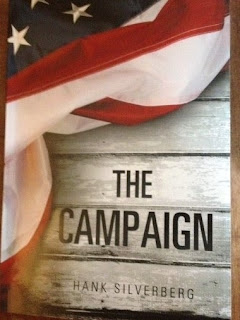Warning Signs #221
By Hank Silverberg
The world may have been ignoring too many warning signs over the last couple of decades, and now they are all coming to roost.
Warning 1: Perhaps the biggest one here in the United States comes from the west coast where experts say the multi-year drought is going to get worse. The National Oceanic and Atmospheric Administration is calling it a "megadrought." NOAA says 60% of the continental U.S. is experiencing drought conditions, the largest area in the U.S. since 2013. And a study published in Nature Science Change indicates that the period between 2000 and 2021 was the driest in 1,200 years.
Just one example comes from Utah, where 99% of the state has severe drought conditions and 43% is in extreme drought.
 |
| (Courtesty USGS) |
‘Megadrought' expected to worsen on the West coast, experts say (msn.com)
California has already placed unprecedented water restrictions on residents and businesses in Los Angeles, Ventura and San Bernardino counties as a result.
The Drought Monitor reports that more than 90.2 million people in the U.S. are currently living in areas affected by the drought.
Why such a severe drought? The scientists are not certain. But it appears to be a combination of a natural drought cycle and climate change.
Warning 2: China has made a deal with the Solomon Islands that may have big security issues for the United States. The Solomons are in the South Pacific. The most notable of the islands is Guadalcanal, which is about 1400 miles northeast of Australia. Yes, that's the same Guadalcanal where 1,600 Americans died and 4,200 were wounded in the 1942-43 battle to take it back from the Japanese during World War Two.
The entire island chain now has only 687,000 people, but no army and only a small police force.
The deal allows China to send armed police, military personnel and other law enforcement to the islands to maintain social order and protect lives and property. And perhaps more ominous, it allows China to carry out "logistical replenishment" in the
Solomons. That doesn't necessarily mean a naval base, but it does mean Chinese ships can dock on any of the islands and stay for a while.
Beijing has increased its "peacekeeping" efforts in the region over the last few years using protection of Chinese citizens and businesses as an excuse. There has been some unrest in the Solomons focused on Chinese business, mainly because the island's leaders formally decided to dump their long-term recognition of Taiwan in favor of the People's Republic of China. China would replace New Zealand and Australia, which have supplied peacekeepers and law officers in the past on the islands.
The United States has been criticized for decades for overlooking the Solomons and ignoring security issues. The agreement may symbolize a shift in power in the South Pacific that is not good for long-term American security.
Warning 3: The pending decision by the U.S. Supreme Court to overturn Roe v. Wade, the case that made abortion legal back in 1973.
We've heard a lot about the leak of the draft ruling, which definitely indicates Roe's days are
.jpg) |
| (SCOTUS) |
It's actually started already. Twenty-eight states have now moved towards restrictions on abortion that could heat up after Roe is gone.
A legislative committee in Louisiana has moved ahead with a bill that would make abortion a homicide and will try to stop interstate shipments of Plan B, the so-called abortion pill.
https://www.theguardian.com/us-news/2022/may/03/roe-v-wade-birth-control
There is also a move there to ban the I-U-D, a popular contraception method.
In Arizona, GOP Senate Candidate Blake Masters is campaigning on a promise that he will only vote for judges who reverse the long- established Griswold v. Connecticut case. That is a 1965 SCOTUS decision which protects the rights of married couples to buy and use contraception with no government restrictions. This case established the right to privacy, which is the basis for many other cases. https://mtsu.edu/first-amendment/article/579/griswold-v-connecticut
In other words, he wants to ban contraception, period, even for married couples.
This is going to come as quite a shock for Gen- Xers, millennials and Generation Z who have no memory or understanding what the world was like before legal abortion and birth control.
Now Some Good News
Plastic pollution is growing and has become a major hazard to our beaches, oceans, air and wildlife. It piles up in landfills and garbage dumps around the world. Now, scientists at the University of Texas at Austin have created a modified enzyme that they say can break down plastics in a matter of days instead of centuries, like it usually takes.
 |
| (Courtesy of InterActionCouncil) |
One of the researchers, Hal Alper, a professor in chemical engineering, told Vice News this new process leaves material that can be used to make fresh plastic from scratch and eliminates the need to use additional petroleum resources.
It has a big advantage over traditional recycling where the integrity of the plastic diminishes with each remold.
The benefits here are somewhat promising. It could mean less plastic pollution, since existing plastic can be recycled faster and better, and it could also mean less reliance on oil as a source of raw material for plastic.
But Alper says they have to test it on plastic with different types of PETs before they can put it to practical use.
Dumbest Quote of the Week!
This week's dumbest quote comes from Florida Republican Congressman Matt Gaetz in reaction to the leak of that draft decision on Roe v. Wade.
He tweeted:
“How many of the women rallying against overturning Roe are over-educated, under-loved millennials who sadly return from protests to a lonely microwave dinner with their cats, and no bumble matches?”
How ironic, since Gaetz is currently under investigation over whether he paid for sex, engaged in sex trafficking and had a sexual relationship with an underage girl. He has not been charged with anything.
(Your comments and suggestions are welcome)
(My book "The Campaign" can be purchased at the links below. Or you can buy a copy by emailing me at:
HankSilverberg@gmail.com for instructions on how to get a copy at a reduced price and with my signature. )
https://www.amazon.com/gp/product/B084Q7K6M5/ref=dbs_a_def_rwt_bibl_vppi_i0
https://www.barnesandnoble.com/w/the-campaign-hank-silverberg/1126429796





Comments
Post a Comment
Reactive comments are welcome. Please keep it civil. Any direct attack on the blogger or those who post is not welcome and will be deleted.